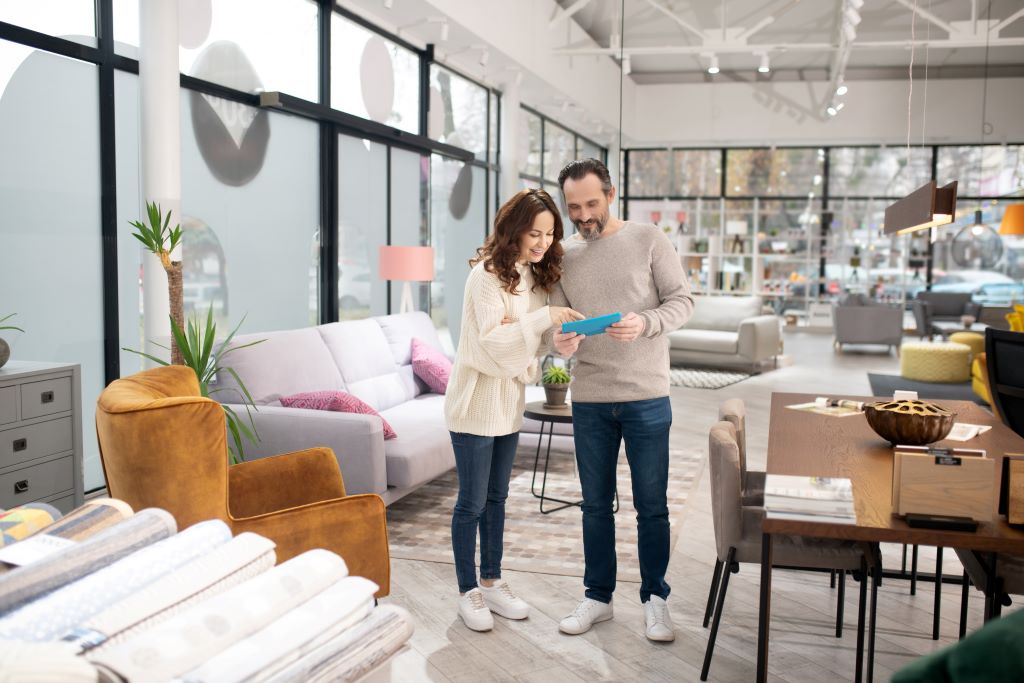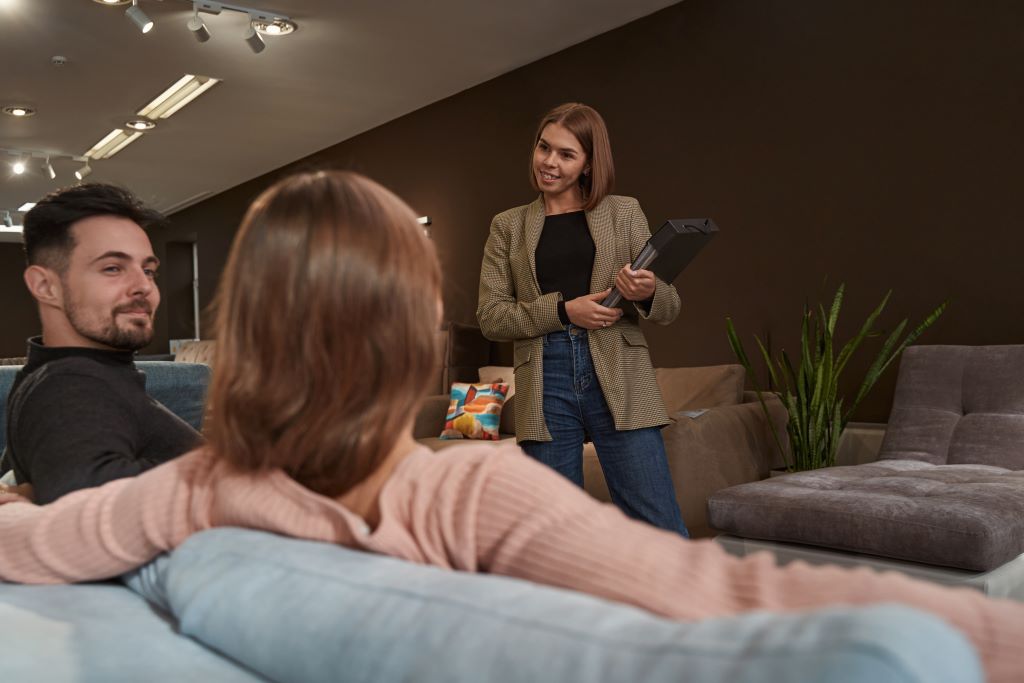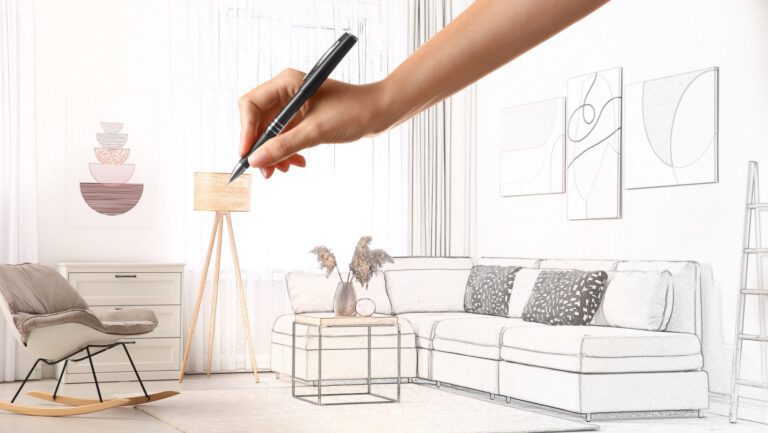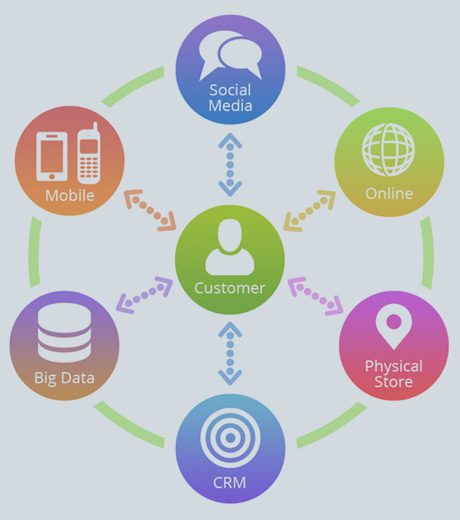The retail furniture industry is a robust and vital sector of the U.S. economy, providing American consumers with a diverse range of products to suit their particular preferences and budgets. Statista said the U.S. furniture market was valued at $229 billion in 2021. According to a 2021 report by Furniture Today, approximately 32 million American households purchase new furniture each year, which accounts for roughly one-fourth of all U.S. households. On average, these households spend around $1,200 on furniture each year. Additionally, the average order size for online furniture purchases was $1,019 in 2020, according to Digital Commerce 360. So with this knowledge, it’s more important than ever before that retailers effectively train their in-store associates to identify and leverage shopper preferences.
Customers Are Ambivalent About Visiting the Furniture Store
Customers’ opinions about visiting furniture stores are mixed. While many enjoy the experience of browsing and testing out furniture pieces, others find the process overwhelming and frustrating. According to a 2021 Furniture Consumer Survey by Furniture Today, customers reported that the top reasons they liked visiting furniture stores were the ability to see and touch the products (79%), the ability to try out furniture (64%), and the ability to get design ideas (42%). Unfortunately, those surveyed also reported numerous dislikes and alienating factors, including high prices (59%), difficulty in finding specific items (42%), and the overwhelming number of choices (39%). The survey concluded that 40% of customers leave furniture stores without making a purchase. The most common reasons for this were that the desired item was out of stock (37%), the customer found a better price elsewhere (34%), or the product did not meet the customer’s needs (28%). Additionally, many customers reported needing help finding furniture matching their style or preferences (26%).
It’s critically important for retailers to combat negative perceptions of furniture shopping to attract and retain customers. To overcome this negative perception, retailers can create a welcoming and family-friendly environment that makes customers feel comfortable and at home. Be sure to provide comfortable seating areas, play pleasant background music, and offer refreshments like coffee or water throughout the store. Regarding furniture store staff members, customers value friendly and knowledgeable associates who provide a personalized shopping experience and those who take the time to understand their needs and shopper preferences, offering guidance and recommendations without being aggressive. In contrast, a lack of product knowledge and pushy sales tactics can quickly alienate customers, leading to lost sales and a negative shopping experience. Store owners and managers must train associates to maintain and share a deep understanding of the products available for purchase – all while delicately balancing friendly and personalized service with the space and privacy customers demand.
Personalizing the In-Store Experience
Making the in-store shopping experience more personal makes it more pleasant for customers and ultimately drives sales. Customers are more likely to purchase when they feel that the retailer understands their shopper preferences and needs and is willing to go the extra mile to meet their expectations. Shoptelligence CEO Laura Khoury says, “Consumers seek assistance from sales associates to get answers to questions they can’t otherwise answer, specific to their situation. Helping sales associates engage in a more personalized way will increase close rates and deliver a more valuable customer experience, enhancing profit and loyalty.”
Exceptional customer service with a foundation in the best possible staff training is the key to providing that personalized experience. Your associates must be knowledgeable about the products you sell to assist with product selection and answer customers’ questions. But in the modern omnichannel environment, more is needed for store associates to know about inventory. They also have to know about their customers. Businesses must gather customer data at every point and teach associates how to leverage it to thrive.
Retailers can collect customer data during every website visit and through in-store surveys, social media, and loyalty programs to better understand shopper preferences and needs. By accessing and interpreting this data, associates can understand more about each possible shopper’s needs and likes, including budget, style, colors, materials, where products are displayed, intended use, family lifestyle, and more. Floor staff can discreetly offer a more personalized in-store experience via product recommendations based on demonstrated preferences and past purchases. In-house decorators can more effectively leverage virtual tools such as room planners to help customers visualize how furniture will look in their homes, imagine items in their space, and try out different configurations. Simultaneously, retailers can provide personalized promotions, even delivering them directly to shoppers’ smartphones as they walk through the store.
Increase Communication Skills to Increase Sales
Top-notch interpersonal skills are critical for furniture sales associates tasked with providing a more enjoyable experience for shoppers. Cultivate these interpersonal skills among your staff members to drive sales.
- Communication skills: Sales associates must communicate effectively with customers, both verbally and non-verbally. Communication includes using positive body language and tone of voice, articulating the features and benefits of different furniture pieces, offering items for possible upsell, and addressing customer questions and concerns. Paraphrasing shopper preferences and repeating them back demonstrates that the associate has heard the customer and ensures they have understood the customer’s style and budget correctly. Acknowledging the customer’s concerns or frustrations and offering solutions that address their needs demonstrates empathy.
- Listening skills: Sales associates must be able to listen actively to customers and understand their needs and preferences. They should be able to ask open-ended questions to help customers articulate what they want and then listen carefully to the answers. Associates should make eye contact with the customer, focus on what they are saying, and avoid getting distracted by other things in the store or their smartphones.
- Problem-solving skills: Staff members should be able to identify and solve problems quickly and effectively. Problem-solving includes providing alternative solutions if customers need help finding a perfect product to match their preferences.
- Patience: Sales associates must be patient, as some customers may take longer to decide or may need more time to browse the store as they search for items that meet their needs. They should be able to maintain a positive attitude and be available to answer any questions or concerns a customer may have. You can help your associates cultivate patience by creating a compensation structure that rewards them for any sales they participate in, whether the customer completes in-store or online transactions.
The Best Way to Gather the Data that Sales Associates Need
Shoptelligence is a discreet, under-the-hood platform that is easily and quickly installed on your existing website. The AI-powered engine gathers the data your clients need to deliver the best, most personalized, and most successful in-store shopping experiences.
What could Shoptelligence do for your retail business? Let’s explore the possibilities together.















